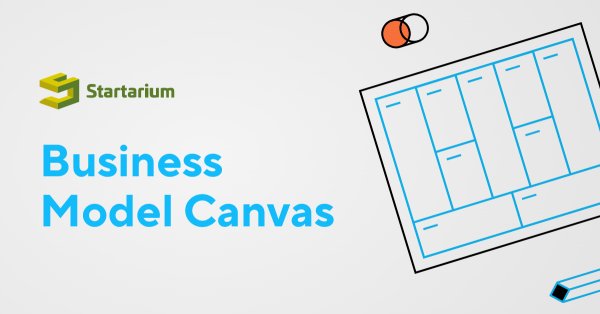Sometimes, dealing with the financial technicalities of running a business might feel overwhelming. But if you become familiar with all the essential terms and follow some basic principles, the financial health of your project will definitely improve.

The financial wellbeing of a business is essential to its resilience (including in times of crisis), to its growth and long-term impact inside the community. It may be an important point to be considered when applying for grants or credits, building strategic partnerships with other organizations and more generally when trying to raise a round of investment.
So where do you begin to take care of the financial health of your business? Well, the easier way is to start with the basics.
Most important financial terms for entrepreneurs and the sustainability of their projects
Cashflow – this plays a critical role in financial planning, and it is also the most important aspect in any successful business. It can foresee most of your business’ cycles, for a given time, meaning that it can predict all the ups or downs of your revenue – when money goes in and out of your bank account.
Turnover – the total revenue from your products/services in a certain timeframe (without discounts/TVA, equities etc). If you want to have a better understanding of your evolution, in comparison with similar companies on the market, your growth, then you might want to keep a constant look at your turnover numbers.
Operational income (EBIT – Earnings before interest, taxes) - shows the company’s revenue from its main activities. You can get this number by subtracting the total costs from the total revenue of your company (without all the taxes & duties, etc).
Gross margin – that percentage of the income that goes to your company after you subtract the production or acquisition costs for the goods and services you sell.
Fixed costs (for example, salaries, rents, utilities costs) vs. variable costs (those that depend on the production)
Indebtedness – the comparison between capitalization (the money that the entrepreneur owns or the money he gained from investors in exchange of equity) and liabilities.
Capital expenses or investments – for example, if you buy an expensive laptop or choose to renovate your office to attract more clients, this means you are generating costs that would turn into future benefits for your business.
Cost of acquisition per client – it shows how much you need to pay to attract a new client.
The average value of a client, as there are only a few domains for which you make long-term or lifetime investment (a house, a car etc). Most of the time, the clients become loyal and make recurrent payments. You can develop your business further if you pay close attention to the acquisition cost for a client and the value they bring.
How to make sure you are growing a healthy project or business?
You should consider having good financial management no matter how successful your business is, no matter the crisis you might experience or other growth or even instability moments you encounter on the road. Here are some useful principles to keep in mind:
Don’t mix business with personal finances
Take this as a golden rule – don't mix business money with personal money. Having this separation from the beginning, you won’t have to worry about having problems with the financial authorities or the risk of being sued at any point. It’s becoming so common for some entrepreneurs to be charged with tax frauds for using their businesses money for personal matters.
This rule also applies vice versa, when you mix personal items or resources in business matters. Most entrepreneurs running small businesses use their personal car to go to meetings or manage other small matters. Make sure you’re constantly in touch with your accountant and check what expenses are deductible. The same rule applies to a mobile phone or other goods. While legislation may differ from a country to another, always make sure you talk to your accountant first – they can give you practical advice on these topics.
Another reason why separating your personal from business assets is essential is applying for loans. For example, if you want to get a mortgage credit involving one part of the business’ assets, then if something happens, you will only lose those business assets. While, when the assets are shared, then the bank has the right to also ask for your personal goods.
Keep a close eye on the cashflow
This is important because even if your business might look great in theory and on paper, but the payment deadlines are shorter than those of receiving payments, you can easily go into a liquidity crisis or bankruptcy.
Here’s how you do can do it:
- List in a table all your estimated sales numbers each month
- Make sure you have a dedicated line in this table where you list your revenue and fill out all the numbers you achieve, even though some might depend on the payment deadlines you have already set
- Fill out also your fixed expenses (rents, pay checks, social contributions etc) and variable expenses (estimated at their maximum value)
- Include the rest of your operational expenses, taking into consideration the due dates of your invoices (goods, raw materials etc.)
- If the case, include all costs related to payments of installments on credits
- See the difference between costs and revenues. For those months when you don’t get any revenue, make sure you have some extra savings to support your activity.
How can you make sure your cashflow is stable?
- Start saving as a back-up plan. If your business is thriving one month and you make extra money, you should make a deposit and save a sum every now and then. This will surely come in handy in difficult times and it’s recommended to have enough money in your deposit to cover your fixed expenses for 6 months (rents, paychecks etc).
- Balance your cashflow. You might find yourself in a much worse situation, when your liquidity problems are linked to your business model. For example, you work with big corporations, and you have very long payment deadlines (in the pharma sector, payment deadlines might exceed to 6 months). If this is your case, then you might want to balance your cashflow long-term – see if you can renegotiate your payment deadlines (for both your expenses and income) or extend your clients’ portfolio.
Cashflow template
Set clear goals for the financial indicators of your business and for your personal finances
First, you need to set a fair paycheck for yourself, making sure it reflects your role in your project or business. Usually, a good majority of entrepreneurs tend to sacrifice themselves for the greater good and settle for less (money). Obviously, this is not such a good practice for many reasons: on one hand, it creates a false impression of the business, and on the other, you risk your personal finances. One “healthy” paycheck means having an amount of money that covers your basic expenses, but also lets you save money at the same time. Don’t assume that the sum should be too considerable, though, as you also need to take into consideration the capital you need for your business on a longer-term basis.
Then, it’s important to keep in mind that if you set goals, your business will flourish. For example, companies listed on the stock market announce their budget for every year and what their goals are and reaching those goals or not will determine the value of their shares. So, it’s essential to set goals, either annually, either on a few years. The same rule applies to your revenue as well – if you have just started your business, it’s usually acceptable if your paycheck is smaller, but this should not continue for too long. The economic theory says that it’s your personal interests that make the world go round, so keep that in mind when you set ambitious personal goals that will go hand in hand with the success of your business.
Optimize your business’s pace
- Pay close attention to your expenses and make sure you prioritize. Some expenses are justifiable when you first start operating your business – for example, it’s better to rent certain equipment or a space, rather than invest in buying it (at least in the beginning). Same goes for collaborating with experts – it's maybe better to collaborate with freelancers rather than hiring a whole team of professionals.
- You can use invoice management software to access your business data immediately
- Register for a digital signature – it will be mostly useful when you’ll need to submit your monthly documents to your Tax institution, but it will come in handy for any other administrative aspects with your clients.
- Make digital copies of your documents, as you can access them anytime, anywhere. But before choosing your provider for the management of your digital documents, ask yourself some questions: how many users you can add (and if the number of users can be extended if necessary), if it’s optimized and if you can use it on your mobile as well or other media devices.























